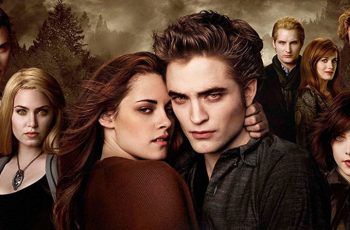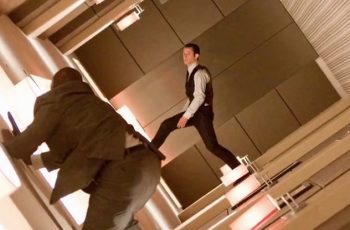For fans of Denis Villeneuve’s masterpiece “Prisoners” (2013), finding similar movies that match its intensity, psychological depth, and masterful storytelling can be challenging. This haunting thriller, which follows a desperate father’s search for his missing daughter and the complex moral choices he faces, set a new standard for contemporary mystery cinema. Like “Prisoners,” the following films delve deep into the dark corners of human nature, featuring compelling mysteries, moral dilemmas, and the lengths people will go to uncover the truth. Whether you’re drawn to the psychological tension, the intricate plot twists, or the stellar performances that made “Prisoners” so memorable, these selections will satisfy your craving for intense, thought-provoking thrillers.
Gone Baby Gone (2007)
Ben Affleck’s directorial debut “Gone Baby Gone” shares striking similarities with “Prisoners” in its exploration of child abduction and moral ambiguity. Set in the working-class neighborhoods of Boston, the film follows private investigators Patrick Kenzie (Casey Affleck) and Angie Gennaro (Michelle Monaghan) as they search for a missing four-year-old girl. Like “Prisoners,” the film delves deep into the psychological impact of child disappearance on a community and questions the boundaries between right and wrong. The investigation uncovers layers of corruption and forces characters to make impossible moral choices, all while maintaining a gritty, realistic atmosphere that mirrors the tone of “Prisoners.” Casey Affleck’s nuanced performance as the determined detective navigating through a maze of lies and deception adds another layer of complexity to this morally challenging narrative. The film’s unflinching look at the darker aspects of human nature and its willingness to ask difficult questions about justice and morality make it a perfect companion piece to “Prisoners.”
Mystic River (2003)
Clint Eastwood’s “Mystic River” masterfully weaves together themes of revenge, justice, and childhood trauma that will resonate strongly with “Prisoners” fans. When Jimmy Marcus’s (Sean Penn) daughter is murdered, childhood friend Sean Devine (Kevin Bacon) leads the investigation, while their mutual friend Dave Boyle (Tim Robbins) becomes a suspect. The film’s exploration of vigilante justice and the devastating effects of violence on families closely parallels the themes in “Prisoners.” Like Hugh Jackman’s character, Penn’s portrayal of a father consumed by grief and rage delivers an emotionally charged performance that earned him an Academy Award. The film’s atmospheric direction by Eastwood creates a sense of impending doom that hangs over every scene, while the intricate screenplay by Brian Helgeland expertly navigates the complex relationships between its characters. The way the past haunts the present and how tragedy can transform ordinary people into creatures of vengeance are themes that will deeply resonate with viewers who appreciated the psychological complexity of “Prisoners.”
Zodiac (2007)
David Fincher’s “Zodiac” brings the same methodical intensity to its investigation as “Prisoners,” though on a larger scale. Following the stories of journalists and detectives obsessed with uncovering the identity of the notorious Zodiac Killer, the film shares “Prisoners'” attention to detail and mounting psychological tension. Jake Gyllenhaal, who also stars in “Prisoners,” delivers another compelling performance as cartoonist Robert Graysmith, whose determination to solve the case consumes his life. The film’s focus on the toll that obsessive investigation takes on its characters mirrors the psychological deterioration seen in “Prisoners.” Fincher’s meticulous direction and the film’s dedication to historical accuracy create an atmosphere of creeping dread that builds throughout its lengthy runtime. The way the investigation slowly consumes its participants, destroying relationships and careers in the process, creates a psychological depth that matches the intensity of “Prisoners.” The film’s exploration of obsession and the price of truth-seeking will particularly resonate with viewers who appreciated the darker psychological aspects of “Prisoners.”
The Secret in Their Eyes (2009)
This Argentine thriller, winner of the Academy Award for Best Foreign Language Film, shares “Prisoners'” masterful blend of crime investigation and personal vendetta. Following a retired legal counselor who writes a novel about an unsolved rape and murder case that has haunted him for decades, the film explores themes of justice, obsession, and the lasting impact of violence. Like “Prisoners,” it maintains a gripping narrative tension while examining how far people will go to find closure and justice. The film’s non-linear narrative structure adds layers of complexity to the story, while the chemistry between leads Ricardo Darín and Soledad Villamil creates an emotional anchor that helps navigate the dark subject matter. The way the film explores how past crimes cast long shadows over the present and how justice can sometimes come at a terrible price echoes many of the central themes in “Prisoners.” Director Juan José Campanella’s masterful handling of both the procedural aspects and the emotional core of the story creates a deeply affecting experience that will satisfy fans of sophisticated crime dramas.
Memories of Murder (2003)
Bong Joon-ho’s masterpiece follows detectives investigating South Korea’s first serial murders, sharing “Prisoners'” dark atmosphere and complex moral landscape. The film’s exploration of investigative procedures, dead ends, and the psychological toll on its characters will feel familiar to “Prisoners” fans. Like Detective Loki in “Prisoners,” the detectives in “Memories of Murder” face their own limitations and frustrations as they pursue an elusive truth, all while dealing with their personal demons. The film’s unique blend of dark humor and tragic elements creates a tone that’s distinctly its own while maintaining the psychological intensity that makes “Prisoners” so compelling. Song Kang-ho’s performance as Detective Park brings a human dimension to the investigation, while the film’s exploration of how violence affects not just individuals but entire communities resonates strongly with themes found in “Prisoners.” The way the film captures the frustration and psychological damage of an unsolved case adds another layer of complexity to this already rich narrative.
Wind River (2017)
Taylor Sheridan’s “Wind River” captures the same raw emotional intensity as “Prisoners” while exploring themes of loss, justice, and vengeance. When a young woman is found dead on a Native American reservation, a wildlife officer (Jeremy Renner) and an FBI agent (Elizabeth Olsen) must navigate both the harsh Wyoming wilderness and complex jurisdictional boundaries to solve the crime. The film’s unflinching look at violence and its aftermath, combined with its exploration of parental grief, creates powerful parallels with “Prisoners.” The stark winter landscape serves as both a physical challenge for the investigators and a metaphor for the cold reality of justice in forgotten places. Renner’s performance as a man carrying his own tragic past while helping others find closure adds emotional depth to this gripping thriller. The film’s examination of systemic injustice and personal revenge provides a fresh perspective on themes similar to those explored in “Prisoners.”
Nocturnal Animals (2016)
Tom Ford’s psychological thriller weaves together multiple narratives that explore themes of revenge, regret, and the devastating impact of violence, much like “Prisoners.” The film follows an art gallery owner (Amy Adams) who receives a manuscript from her ex-husband (Jake Gyllenhaal) that tells a violent story she interprets as a veiled threat. The narrative’s exploration of vengeance and moral responsibility echoes the complex themes found in “Prisoners,” while maintaining its own unique and stylish approach to psychological tension. Ford’s background in fashion design brings a distinctive visual style to the film, while the parallel narratives create a complex meditation on love, loss, and revenge. The way the film blurs the lines between fiction and reality, past and present, creates a psychological complexity that will appeal to viewers who appreciated the layered storytelling in “Prisoners.”
Incendies (2010)
Another masterpiece from “Prisoners” director Denis Villeneuve, “Incendies” follows twins who uncover their mother’s tragic past in the Middle East. While different in setting from “Prisoners,” the film shares its director’s masterful handling of suspense, family secrets, and the dark corners of human nature. The methodical unveiling of truth and the emotional impact of discovery create the same kind of psychological tension that made “Prisoners” so compelling. Lubna Azabal’s powerful performance as the mother whose past holds shocking secrets anchors this complex narrative, while Villeneuve’s assured direction guides viewers through multiple timelines and revelations. The film’s exploration of how the past can violently intrude on the present and how truth can sometimes be more devastating than uncertainty shares thematic DNA with “Prisoners.”
The Girl with the Dragon Tattoo (2011)
David Fincher’s adaptation of Stieg Larsson’s novel shares “Prisoners'” dark atmosphere and methodical approach to investigation. Following journalist Mikael Blomkvist (Daniel Craig) and hacker Lisbeth Salander (Rooney Mara) as they investigate a decades-old disappearance, the film maintains the same kind of relentless tension and attention to detail that made “Prisoners” so engaging. The film’s exploration of family secrets, violence, and justice will resonate strongly with fans of “Prisoners.” Fincher’s signature visual style and Trent Reznor’s haunting score create an atmosphere of constant unease, while Mara’s transformative performance as Lisbeth Salander brings a unique energy to this dark narrative. The way the film deals with themes of institutional corruption and personal vengeance while maintaining its focus on the human cost of violence mirrors many of the central concerns in “Prisoners.”
Se7en (1995)
While predating “Prisoners” by nearly two decades, David Fincher’s “Se7en” established many of the dark thriller elements that would later influence films like “Prisoners.” Following two detectives (Brad Pitt and Morgan Freeman) as they track a serial killer using the seven deadly sins as his modus operandi, the film shares “Prisoners'” unflinching look at human darkness and moral complexity. The rain-soaked atmosphere, methodical investigation, and shocking revelations create the same kind of psychological impact that made “Prisoners” so memorable. The contrast between Morgan Freeman’s world-weary detective and Brad Pitt’s idealistic newcomer creates a dynamic that explores different approaches to justice and morality, while the film’s infamous ending delivers an emotional punch that rivals the most intense moments in “Prisoners.” The way the film examines how exposure to extreme evil can corrupt even the most righteous souls resonates strongly with themes explored in “Prisoners.”
For viewers who appreciated the psychological depth, moral complexity, and masterful storytelling of “Prisoners,” these films offer similarly engaging experiences. Each brings its own unique perspective to themes of justice, revenge, and the human capacity for both good and evil, while maintaining the high level of tension and emotional impact that made “Prisoners” such a compelling watch. Whether you’re drawn to intricate mysteries, complex characters, or thought-provoking moral dilemmas, these selections provide hours of engaging entertainment that will stay with you long after the credits roll. Like “Prisoners,” these films remind us that the search for truth often comes at a great personal cost, and that justice, when it finally arrives, may not always bring the closure we seek.


